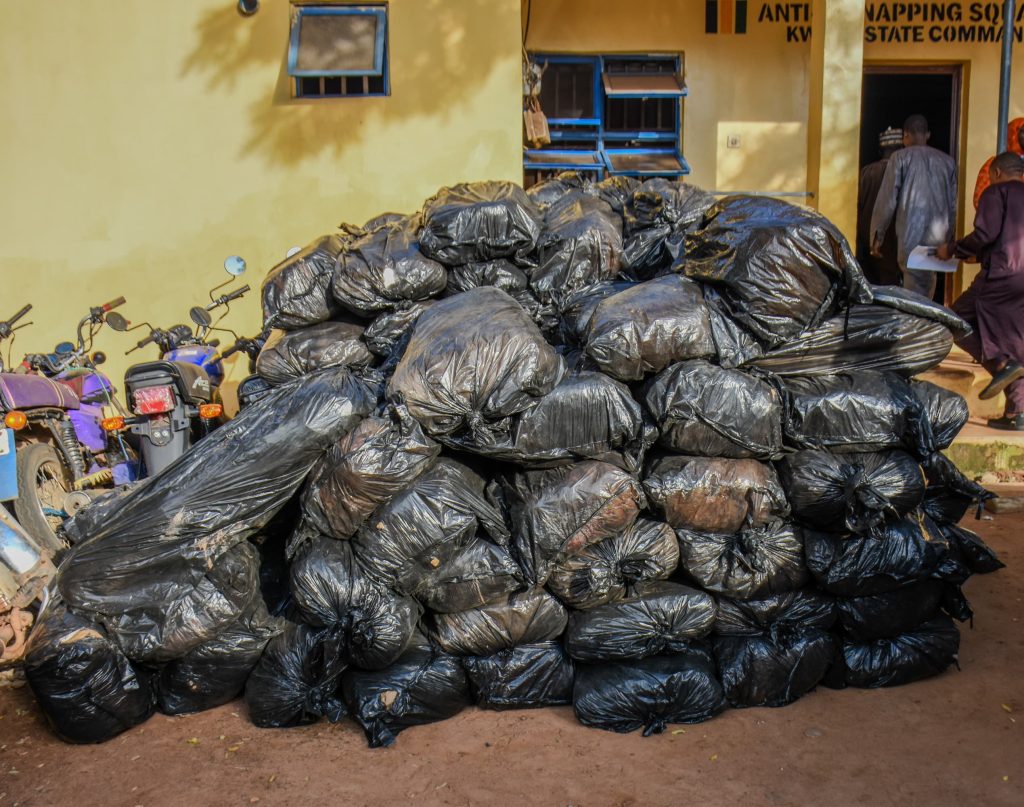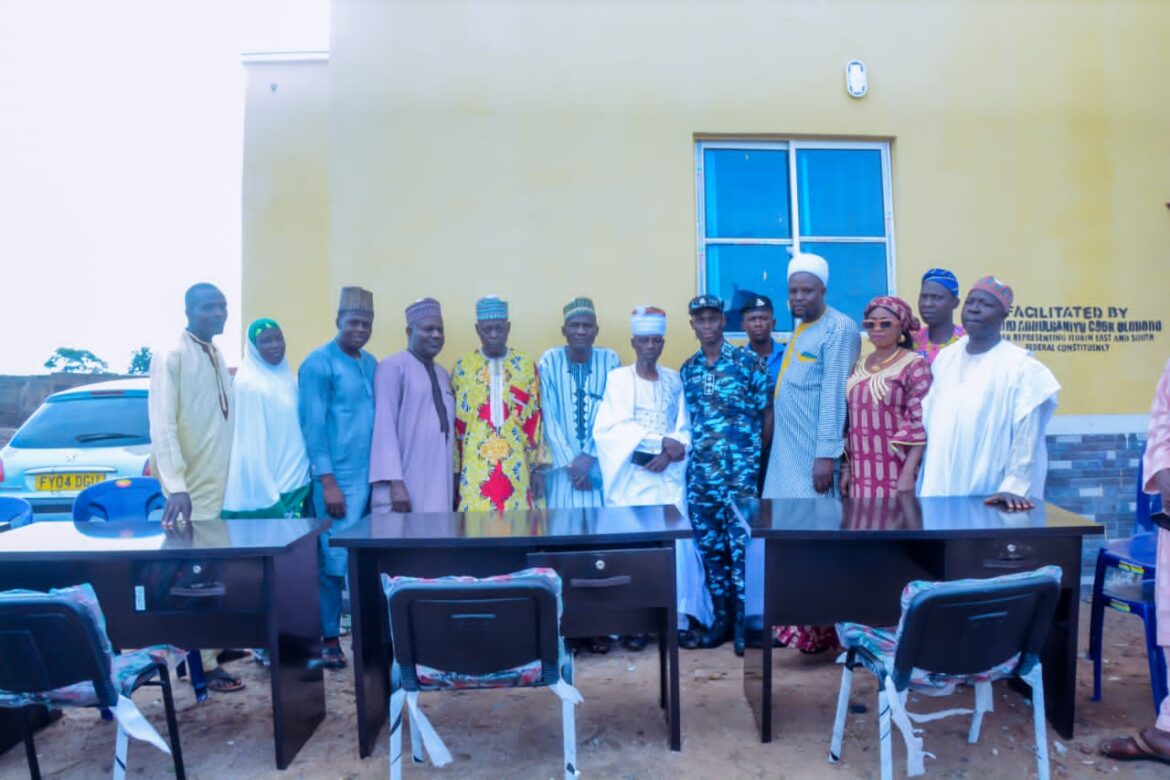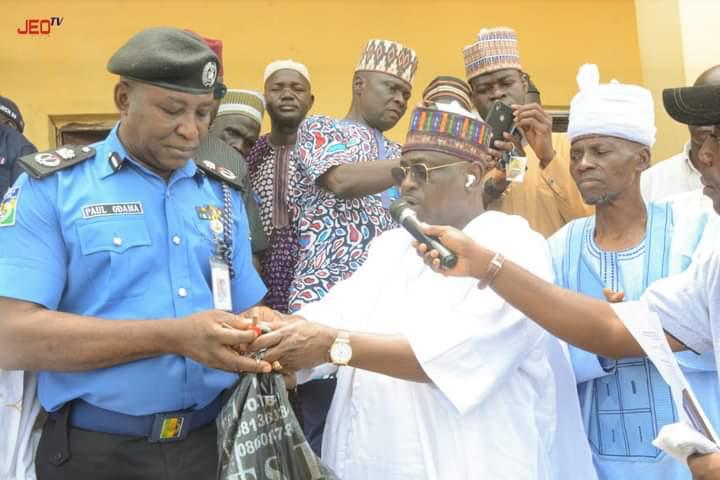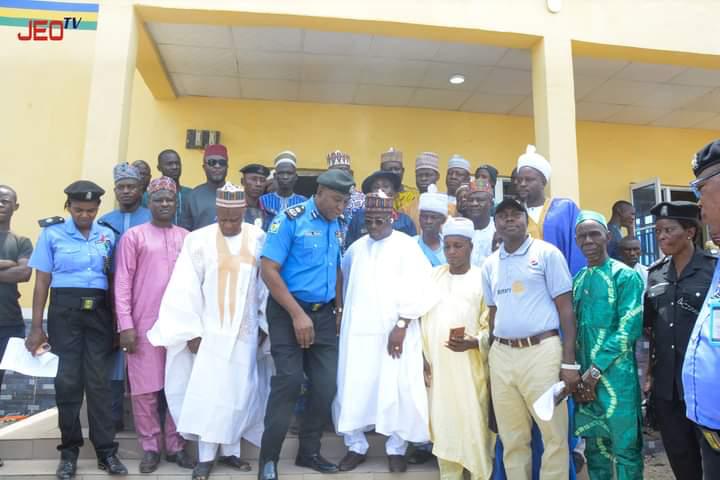The Kwara State Police Command has recorded a major breakthrough in its fight against crime and illicit drug trafficking following the interception of a vehicle loaded with cannabis cleverly concealed under tubers of yam.
According to a statement issued by the Police Public Relations Officer, SP Adetoun Ejire-Adeyemi, the operation was carried out on Friday, September 26, 2025, around 4:00 p.m., through a joint effort involving operatives of the Office of the National Security Adviser (NSA), the Nigeria Forest Security Service (NFSS), and vigilante groups.
The joint team intercepted a vehicle along the Babanla–Oreke–Oke-Ode axis, uncovering 127 bags of substances suspected to be cannabis hidden beneath yam tubers.
The statement added that two suspects, identified as Dan-Teni Haruna and Rabiu Ibrahim, both from Saliku, Magama Local Government Area of Niger State, were arrested in connection with the smuggling.
In a related development, the operatives also apprehended Mohammed Abubakar and Hussain, both from Tsaragi, and Tukur Ibrahim a notorious kidnapper.
The suspects were allegedly involved in the invasion of Babanla on August 8, 2025. Police said they will be arraigned in court after the conclusion of investigations.

The Commissioner of Police, CP Adekimi Ojo, commended the operatives for their synergy and swift response, stressing that the Command remains committed to ridding the state of criminal activities.
He warned that Kwara would not be allowed to serve as a safe haven for criminal elements.










